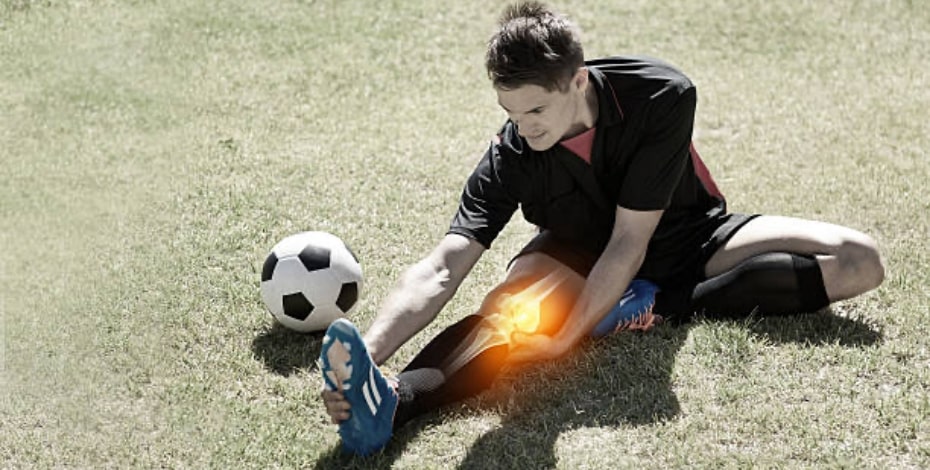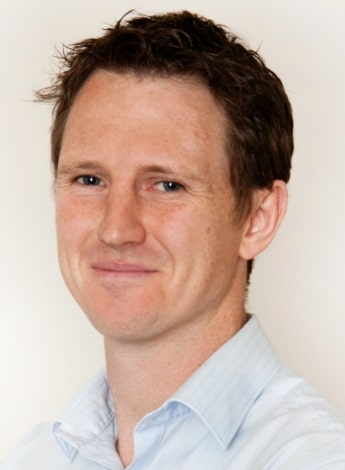
Put your best knee forward

The online Victorian Branch End-of-Year Breakfast with Christian Barton provides new perspectives on exercise therapy for knee osteoarthritis.
For 15 years, clinician and researcher Dr Christian Barton has focused on individual exercise solutions and holistic patient education for people with persistent pain.
His passion is to have people stay physically active, especially those with difficult-to-treat long-term injuries and knee osteoarthritis.
Great improvements in pain and function for people with knee osteoarthritis are possible, he says, when good education is combined with exercise therapy.
However, a challenge for physiotherapists is patients understanding and accepting the value of exercise.
Christian will share ideas to engage with patients at the Victorian Branch End-of-Year Breakfast on November 19.
His topic, ‘First-line care for knee osteoarthritis: how can we make it happen?’, will include a discussion of Good Life with osteoArthritis: Denmark (GLA:D) and other physiotherapy care, such as providing holistic patient education and delivering group education and exercise via telehealth.
‘Getting patients on board is one of the biggest barriers that we will have as physiotherapists.
'So one of the things that we’ll go through during the session is how we can educate patients to understand the value of the exercise, how we can get them to embrace exercises as treatment and to adhere to it.’
Educating health professionals who refer patients to physiotherapists, such as surgeons, rheumatologists and sports physicians, will also be considered.
‘If we provide guideline-based first-line care, including education and exercise, we can not only help improve the quality of life of each patient, but also potentially save the health system a lot of money.
'So this is an area where we have a strong opportunity to be much better funded in the future to deliver the services we offer to the community.’
Christian says that a positive aspect of providing clinical care during a global pandemic has been people adapting to telehealth services.
However, there is still work to do in this space, despite research indicating an uptake in patients ‘embracing and receiving high-value and quality care and effective care’ via digital resources.
‘There is a perception among patients and physiotherapists that in order to provide quality care, we need to see people physically, so this is a problem.
'Before the pandemic, we had people who may not have been able to easily access care because they lived remotely or because work or family commitments prevented them from getting to the clinic easily.

Christian Barton encourages physiotherapists to educate patients on the benefits of exercise therapy for knee osteoarthritis.
‘We have shown that we can use services like telehealth, and even just digitally supporting people through online resources, to help them engage in the care they need, particularly with exercise programs.’
Christian works in both research and private practice, treating sports and musculoskeletal patients.
He is on the board of the Victorian branch of the Musculoskeletal Physiotherapy Association and an Associate Professor in Physiotherapy at La Trobe University.
His research interests focus on knee and running injuries and on knowledge translation, including the use of innovative digital technologies.
He is also co-project lead of the GLA:D Australia Program, which has been rolled out to more than 450 physiotherapist services across all states and territories since 2016.
With the support of a Pat Cosh Trust grant, Christian is further exploring ways to encourage the uptake of patient education and exercise therapy.
His team of researchers at La Trobe University’s Sport and Exercise Medicine Research Centre is developing a telehealth toolkit to support physiotherapists and patients to engage with musculoskeletal services like GLA:D.
‘Prior to the pandemic we were working hard to deliver GLA:D via telehealth and now we are looking to develop online resources, including individualised education options, for patients to manage their own conditions.
'These resources are designed to be used in conjunction with the support of a physiotherapist.
‘One thing that we could do as physiotherapists is to reflect on the messages we give to people about osteoarthritis, what we tell them about the condition and how we think that may impact on their willingness to engage in exercise from a positive or a negative perspective.
‘There is a myth that people with osteoarthritis should stop running or stop doing a lot of activities that they enjoy.
'With exercise therapy, we can rebuild someone’s capacity to run or optimise their capacity to do activity with less pain or no pain and to get the most benefits out of the activity that they enjoy.
'Osteoarthritis does not mean the end of exercise or running for that matter.’
The Victorian Branch End-of-Year Breakfast will be held online on Friday 19 November at 7 am. Click here to book.
>> Dr Christian Barton investigates and delivers holistic patient education and exercise therapy for people with persistent pain. He is an Associate Professor in Physiotherapy at La Trobe University, with a primary focus on improving knee pain and injury management. He runs courses on knee pain and running injury management in Australia, the United Kingdom, Europe and Scandinavia and is the co-lead of GLA:D Australia.
© Copyright 2024 by Australian Physiotherapy Association. All rights reserved.





